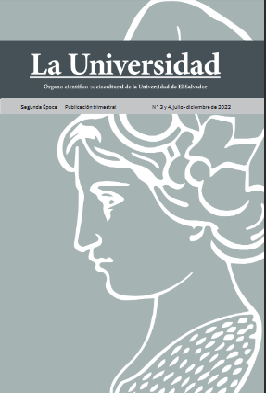Improving Immunohistochemistry Capability for Pediatric Cancer Care in the Central American and Caribbean Region
a Report From the AHOPCA Pathology Working Group
Abstract
Accessibility to immunohistochemistry (IHC) is invaluable to proper diagnosis and treatment of pediatric patients with malignant neoplasms. Whereas IHC is widely available in anatomic pathology laboratories in high-income countries, access to it in anatomic pathology laboratories of low- and middle-income countries remains a struggle, with many limitations. To advance the quality of the pathology service offered to children with cancer in areas with limited resources, a 5-day pathology training workshop was offered to pathologists and histotechnologists from various countries of the Central American and Caribbean region. An initial assessment of the workshop participants’ current laboratory capacities was performed, and a regional training center was selected. Didactic and hands-on activities were offered, and review and evaluation of the IHC slides produced during the training course were compared with original slides from the participants’ sites. This model of intensive 5-day training appears to be effective and can potentially be used in other budget-constrained regions. Moreover, it can serve as a continuing education activity for pathologists and histotechnologists, and as part of validations and quality improvement projects to build capacity and develop IHC assay proficiency in low- and middle-income countries.
Downloads
References
Parham DM: Immunohistochemical markers of soft tissue tumors: Pathologic diagnosis, genetic contributions, and therapeutic options. Anal Chem Insights 10:1-10, 2015 (Suppl 1)
Sebire NJ, Gibson S, Rampling D, et al: Immunohistochemical findings in embryonal small round cell tumors with molecular diagnostic confirmation. Appl Immunohistochem Mol Morphol 13:1-5, 2005
Sala A, Antillon F, Pencharz P, et al: Nutritional status in children with cancer: A report from the AHOPCA Workshop held in Guatemala City, August 31-September 5, 2004. Pediatr Blood Cancer 45:230-236, 2005
Howard SC, Marinoni M, Castillo L, et al: Improving outcomes for children with cancer in low- income countries in Latin America: A report on the recent meetings of the Monza International School of Pediatric Hematology/Oncology (MISPHO)-Part I. Pediatr Blood Cancer 48:364-369, 2007
Antillon F, de Maselli T, Garcia T, et al: Nutritional status of children during treatment for acute lymphoblastic leukemia in the Central American Pediatric Hematology Oncology Association (AHOPCA): Preliminary data from Guatemala. Pediatr Blood Cancer 50:502-505, discussion 517, 2008 (suppl 2)
Sala A, Rossi E, Antillon F: Nutritional status at diagnosis in children and adolescents with cancer in the Asociacion de Hemato- Oncologia Pediatrica de Centro America (AHOPCA) countries: Preliminary results from Guatemala. Pediatr Blood Cancer 50:499-501, discussion 517, 2008 (suppl 2)
Sala A, Rossi E, Antillon F, et al: Nutritional status at diagnosis is related to clinical outcomes in children and adolescents with cancer: A perspective from Central America. Eur J Cancer 48:243- 252, 2012
Luna-Fineman S, Barnoya M, Bonilla M, et al: Retinoblastoma in Central America: Report from the Central American Association of Pediatric Hematology Oncology (AHOPCA). Pediatr Blood Cancer 58:545-550, 2012
Friedrich P, Ortiz R, Strait K, et al: Pediatric sarcoma in Central America: Outcomes, challenges, and plans for improvement. Cancer 119:871-879, 2013
Friedrich P, Ortiz R, Fuentes S, et al: Barriers to effective treatment of pediatric solid tumors in middle-income countries: Can we make sense of the spectrum of nonbiologic factors that influence outcomes? Cancer 120:112-125, 2014
Castellanos EM, Barrantes JC, Báez LF, et al: A chemotherapy only therapeutic approach to pediatric Hodgkin lymphoma: AHOPCA LH 1999. Pediatr Blood Cancer 61:997-1002, 2014
Navarrete M, Rossi E, Brivio E, et al: Treatment of childhood acute lymphoblastic leukemia in Central America: A lower-middle income countries experience. Pediatr Blood Cancer 61:803- 809, 2014
Barr RD, Antillón Klussmann F, Baez F, et al: Asociación de Hemato-Oncología Pediátrica de Centro América (AHOPCA): A model for sustainable development in pediatric oncology. Pediatr Blood Cancer 61:345-354, 2014
Ceppi F, Ortiz R, Antillón F, et al: Anaplastic large cell lymphoma in Central America: A report from the Central American Association of Pediatric Hematology Oncology (AHOPCA). Pediatr Blood Cancer 63:78-82, 2016
Santiago TC, Jenkins JJ: Histopathologic diagnosis of pediatric neoplasms: A review of international consultations. Arch Pathol Lab Med 137:1648-1653, 2013
Casebeer A: Application of SWOT analysis. Br J Hosp Med 49:430-431, 1993
Downloads
Published
How to Cite
Issue
Section
License

This work is licensed under a Creative Commons Attribution-NonCommercial 4.0 International License.
Los textos académicos y científicos que se publican en la Revista La Universidad están protegidos bajo la licencia CC BY NC SA 4.0, esta permite usar una obra para crear otra obra o contenido, modificando o no la obra original, siempre que se cite al autor, la obra resultante se comparta bajo el mismo tipo de licencia y no tenga fines comerciales (https://creativecommons.org/licenses/by-nc-sa/4.0/deed.es) . El autor es el único que pose los derechos de publicación y la Revista La Universidad posee los derechos de difusión.







